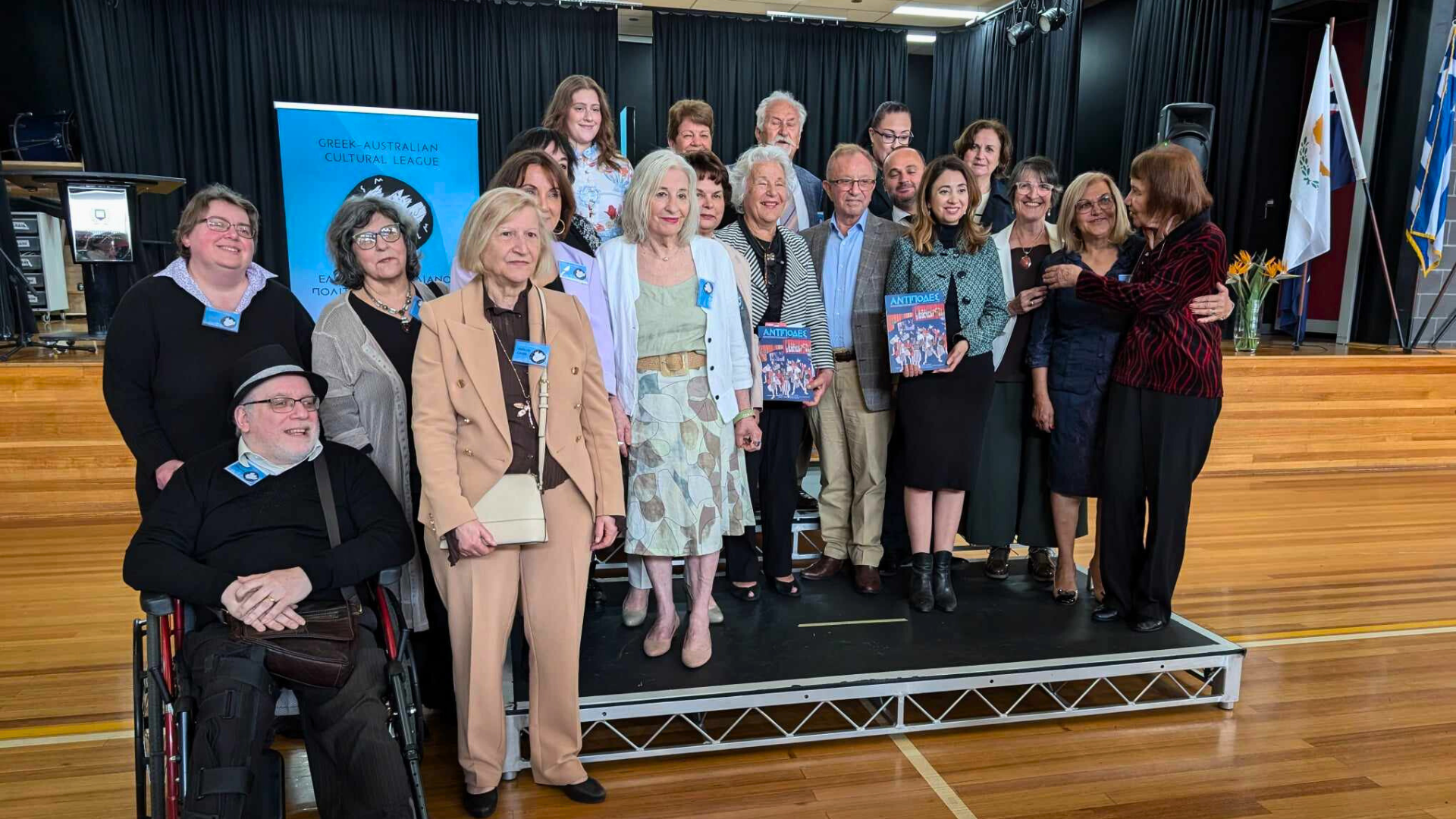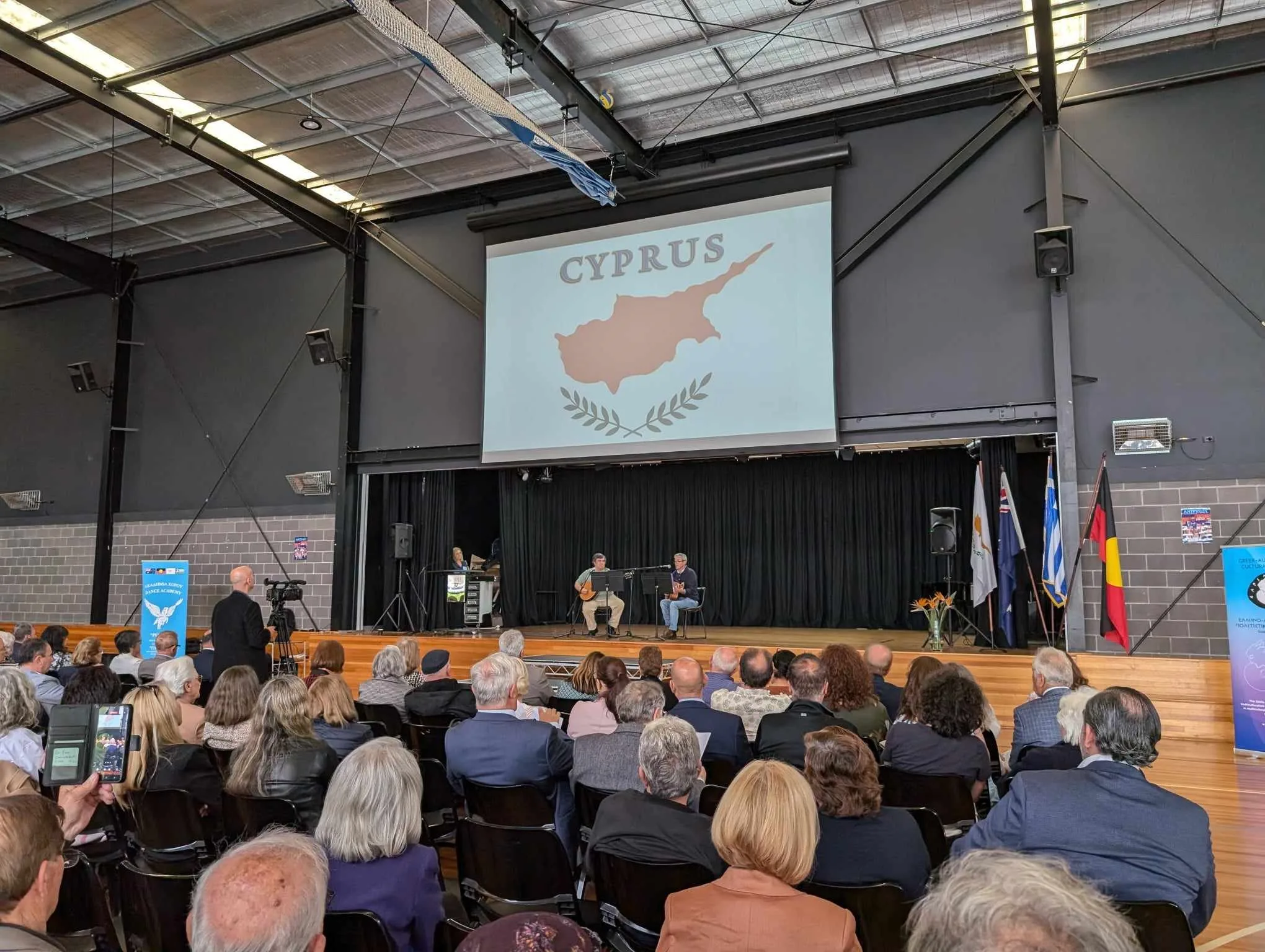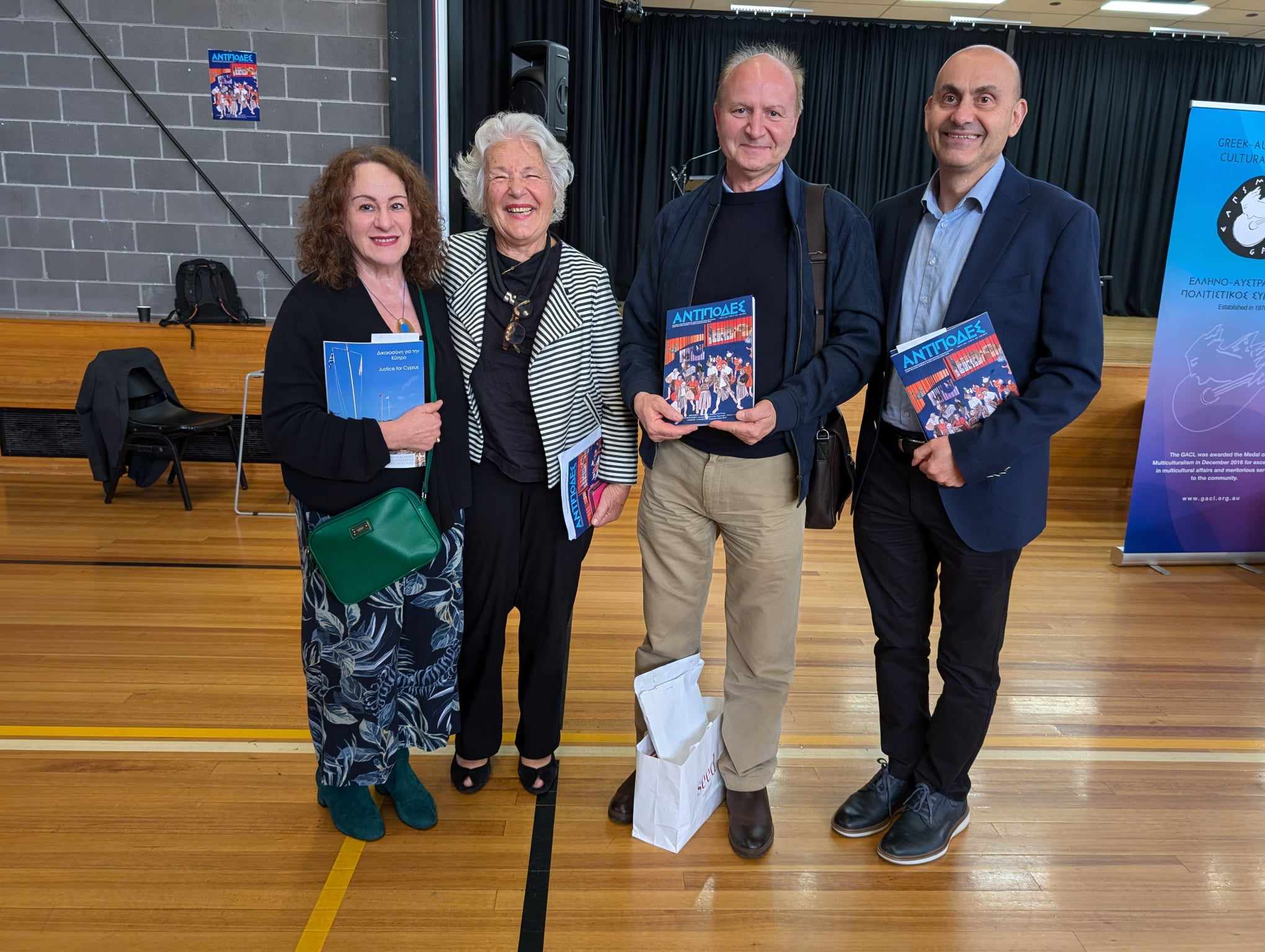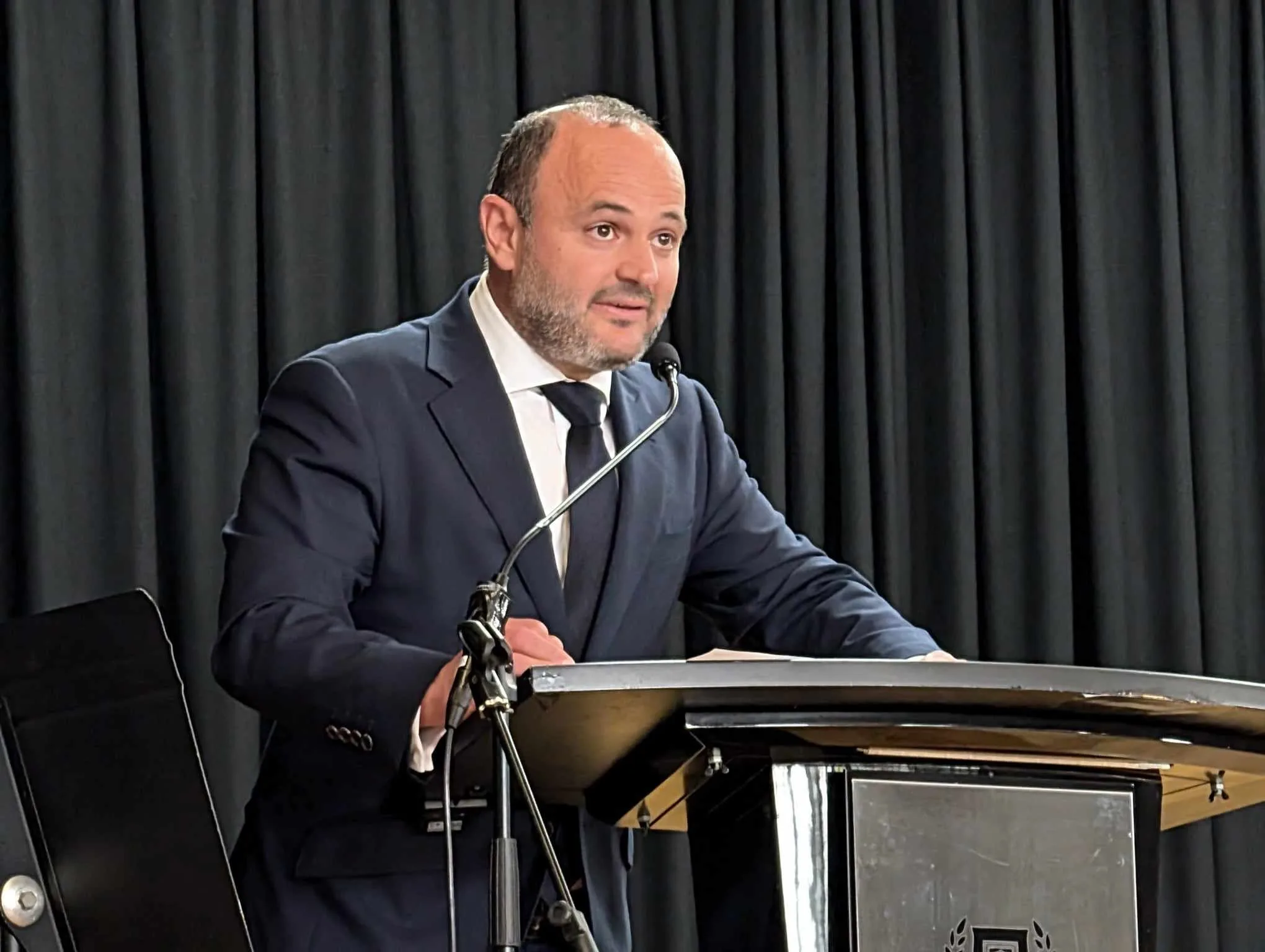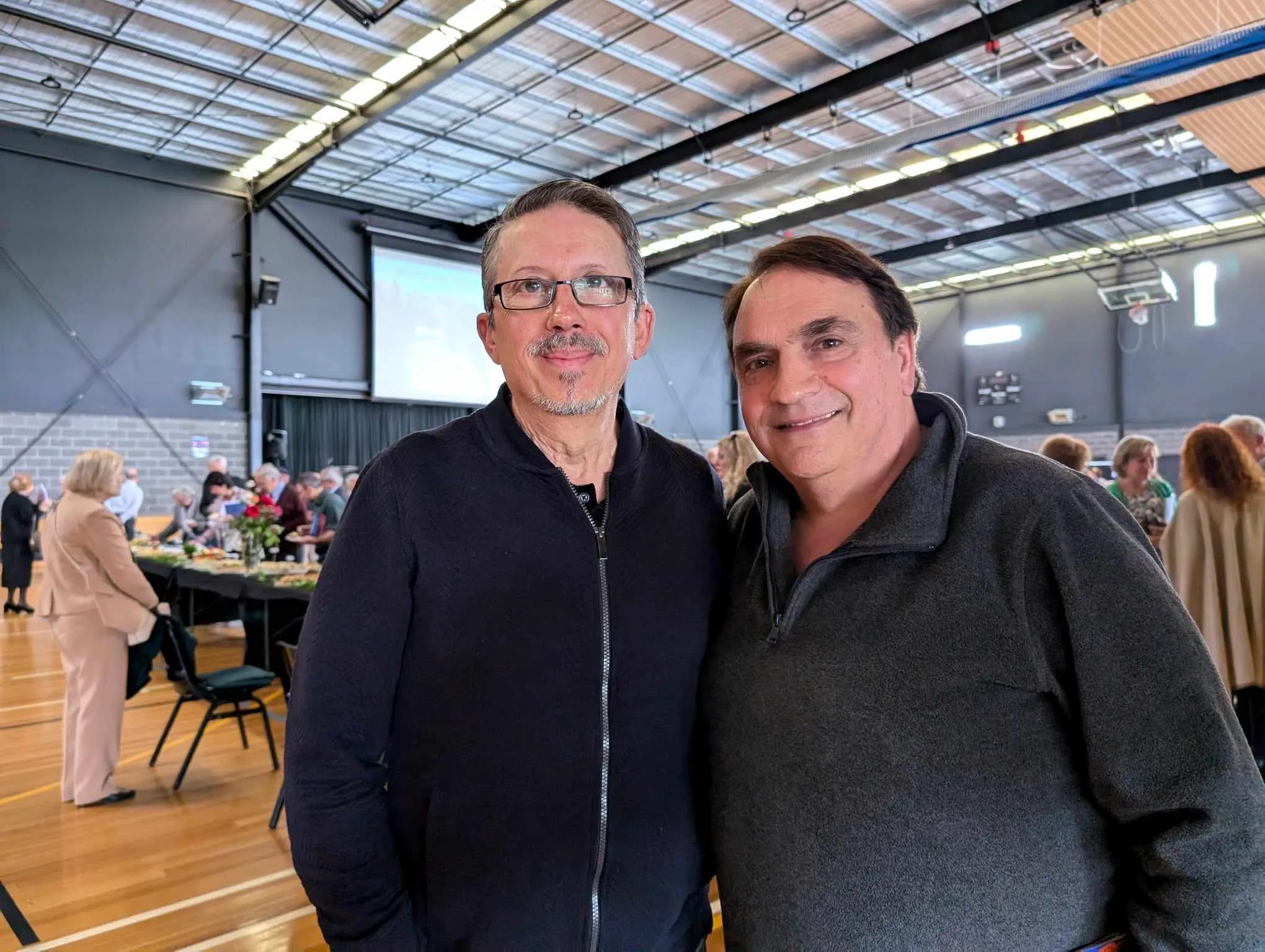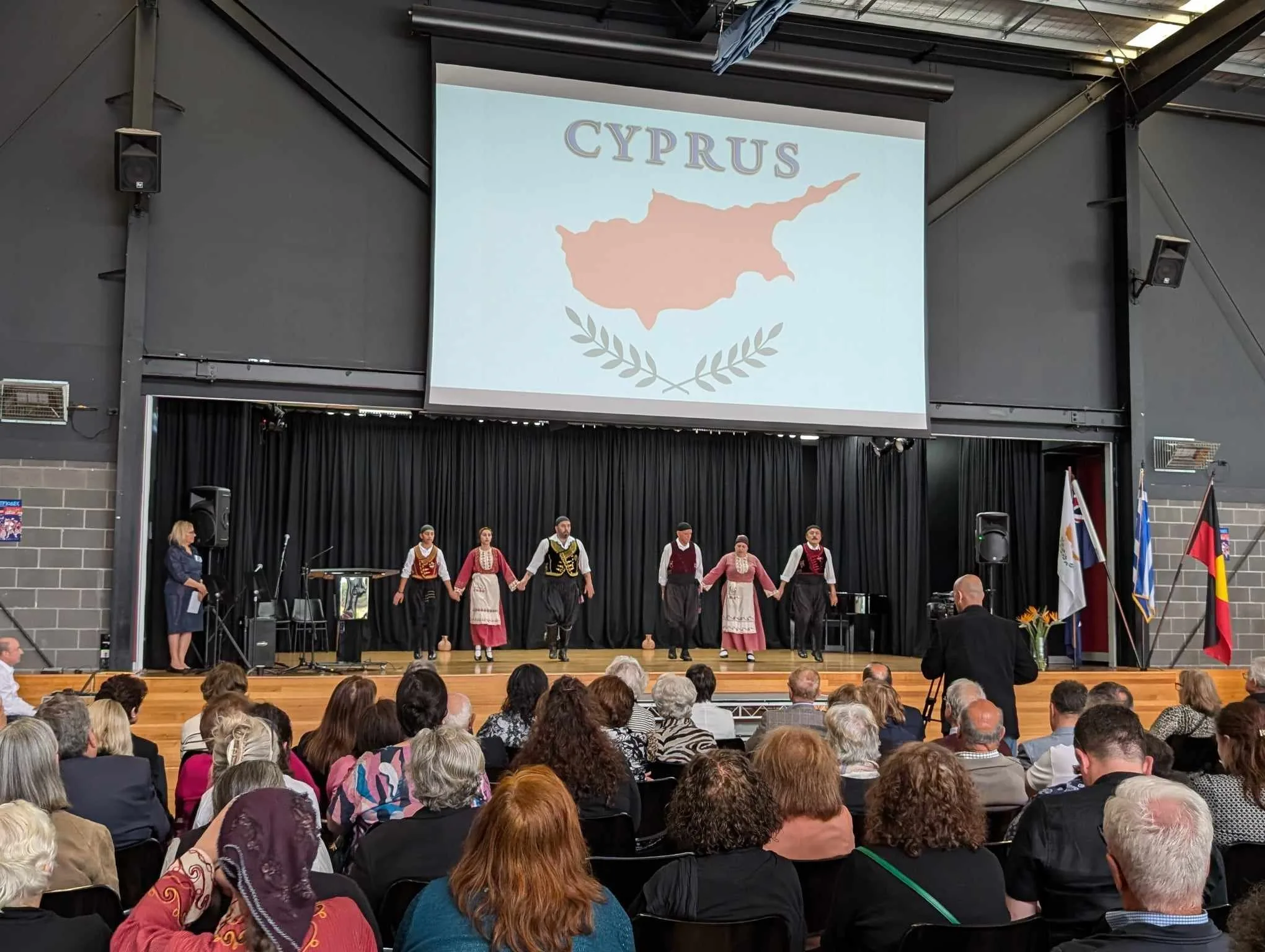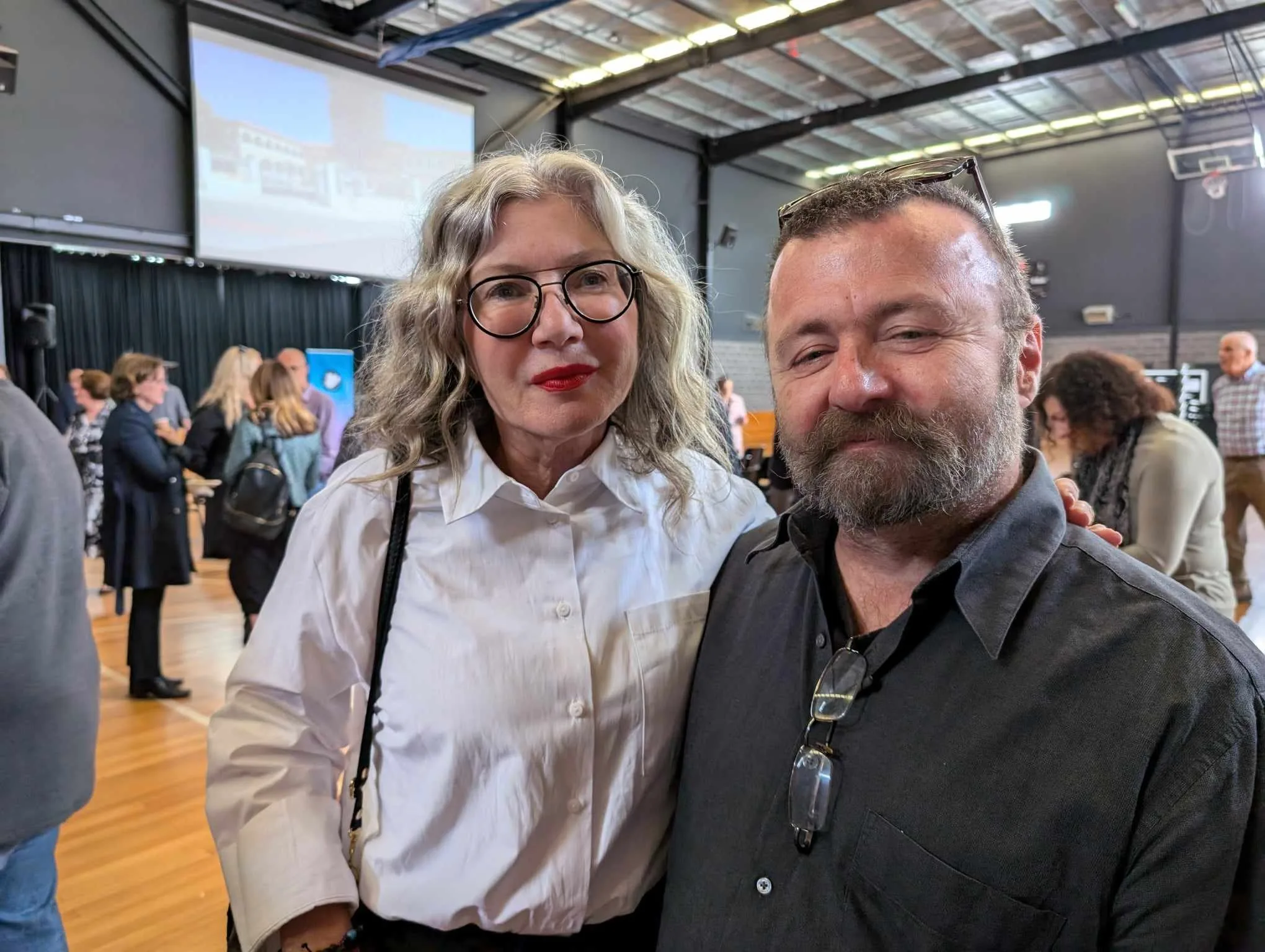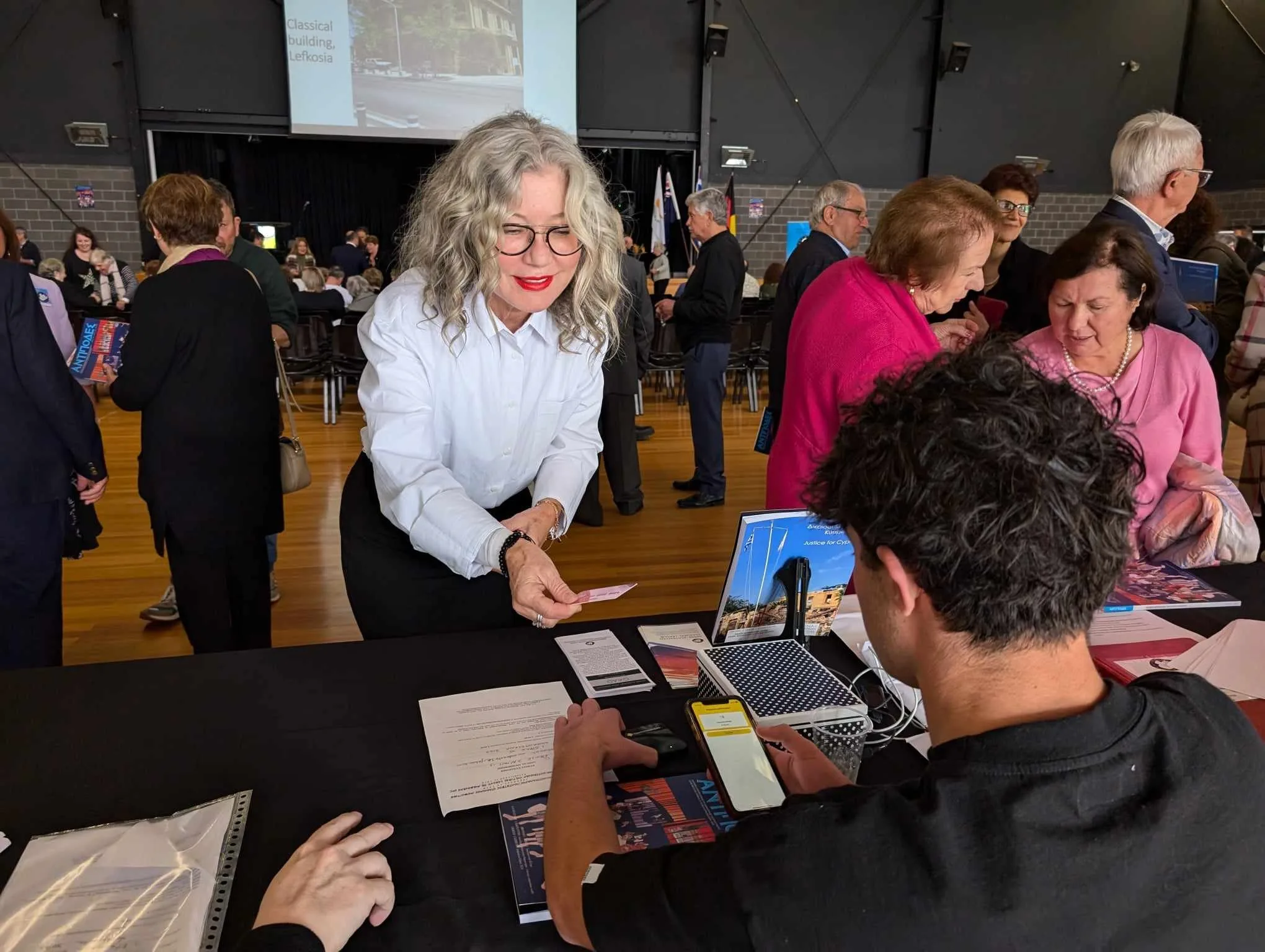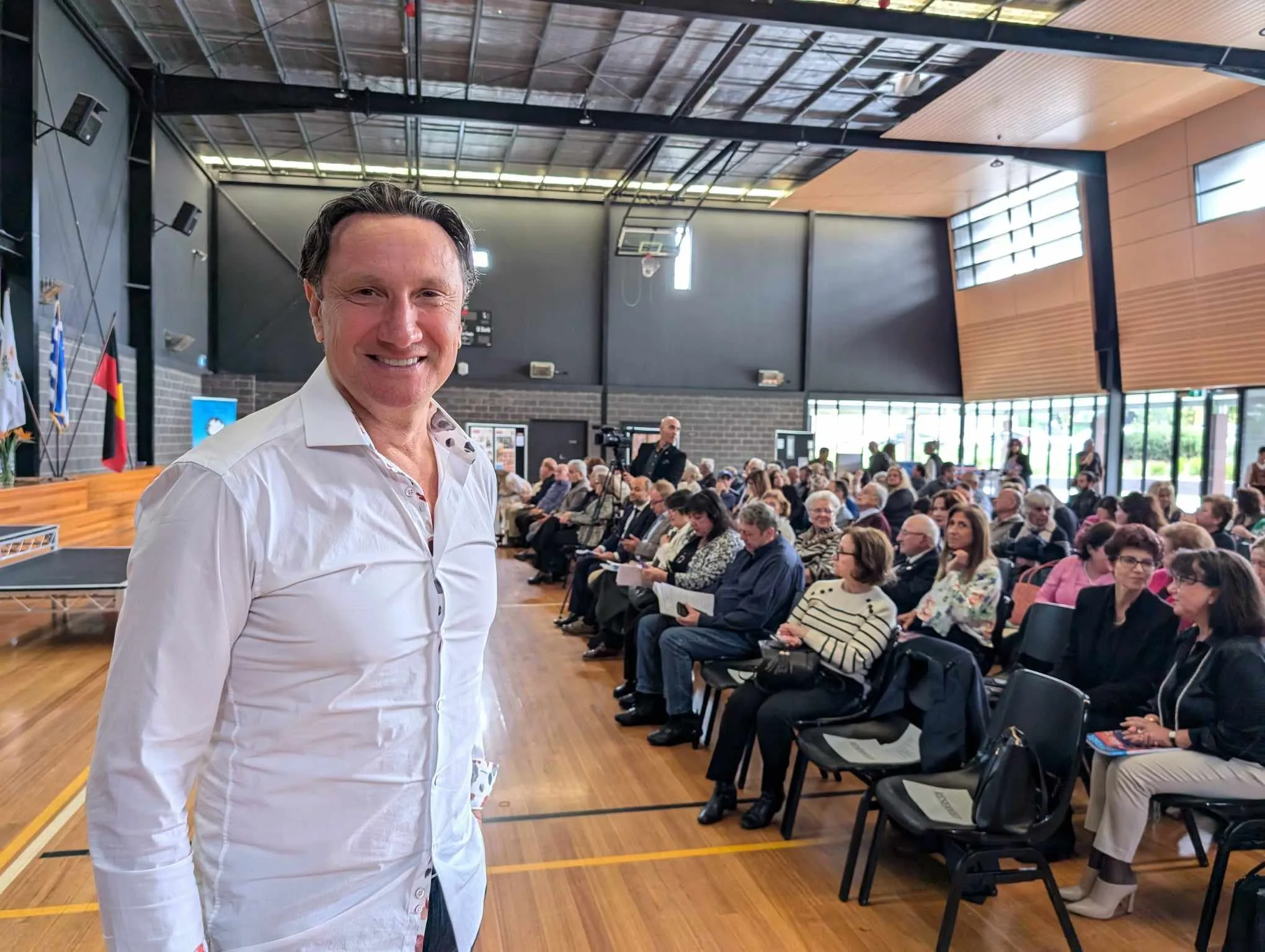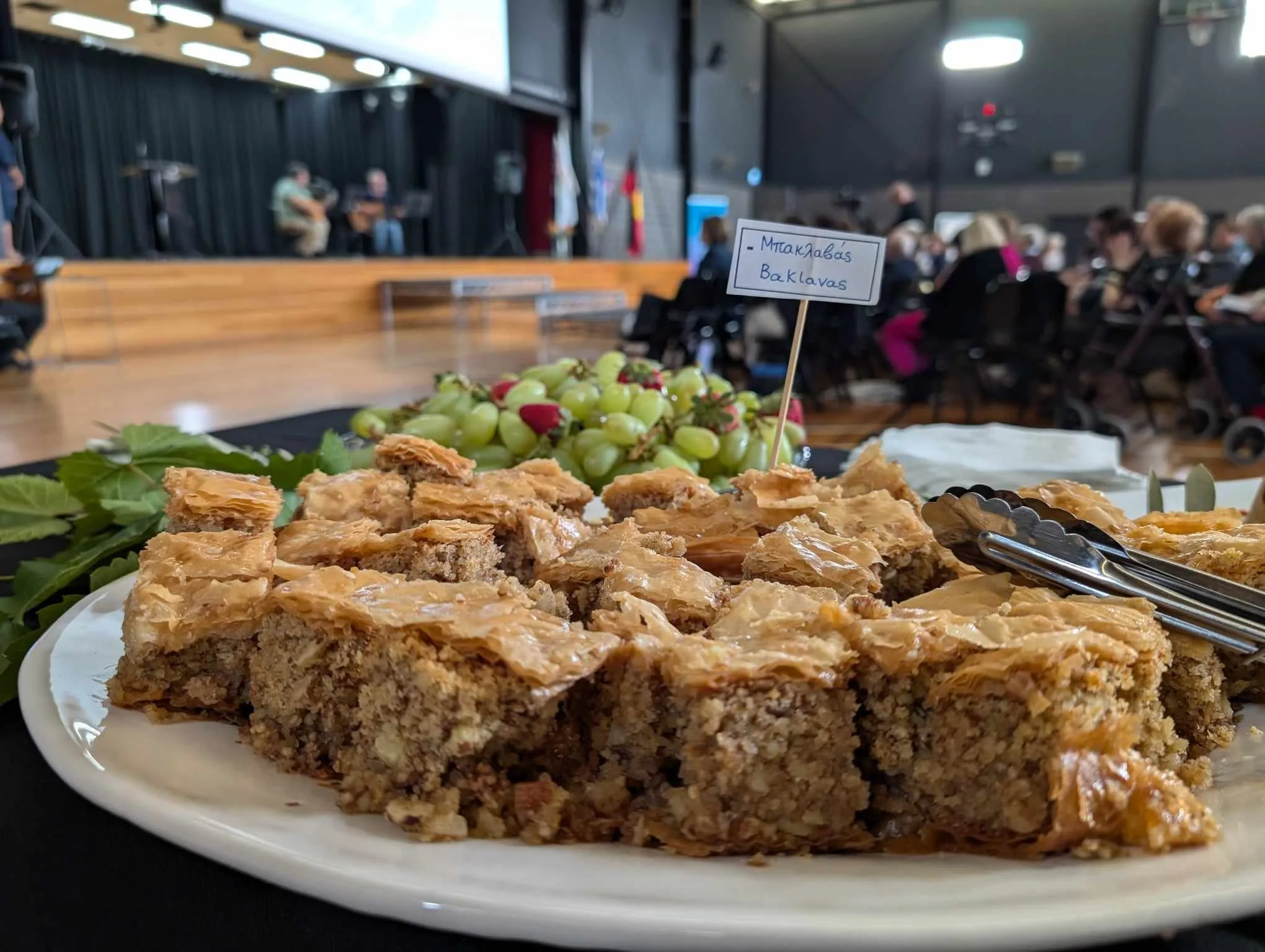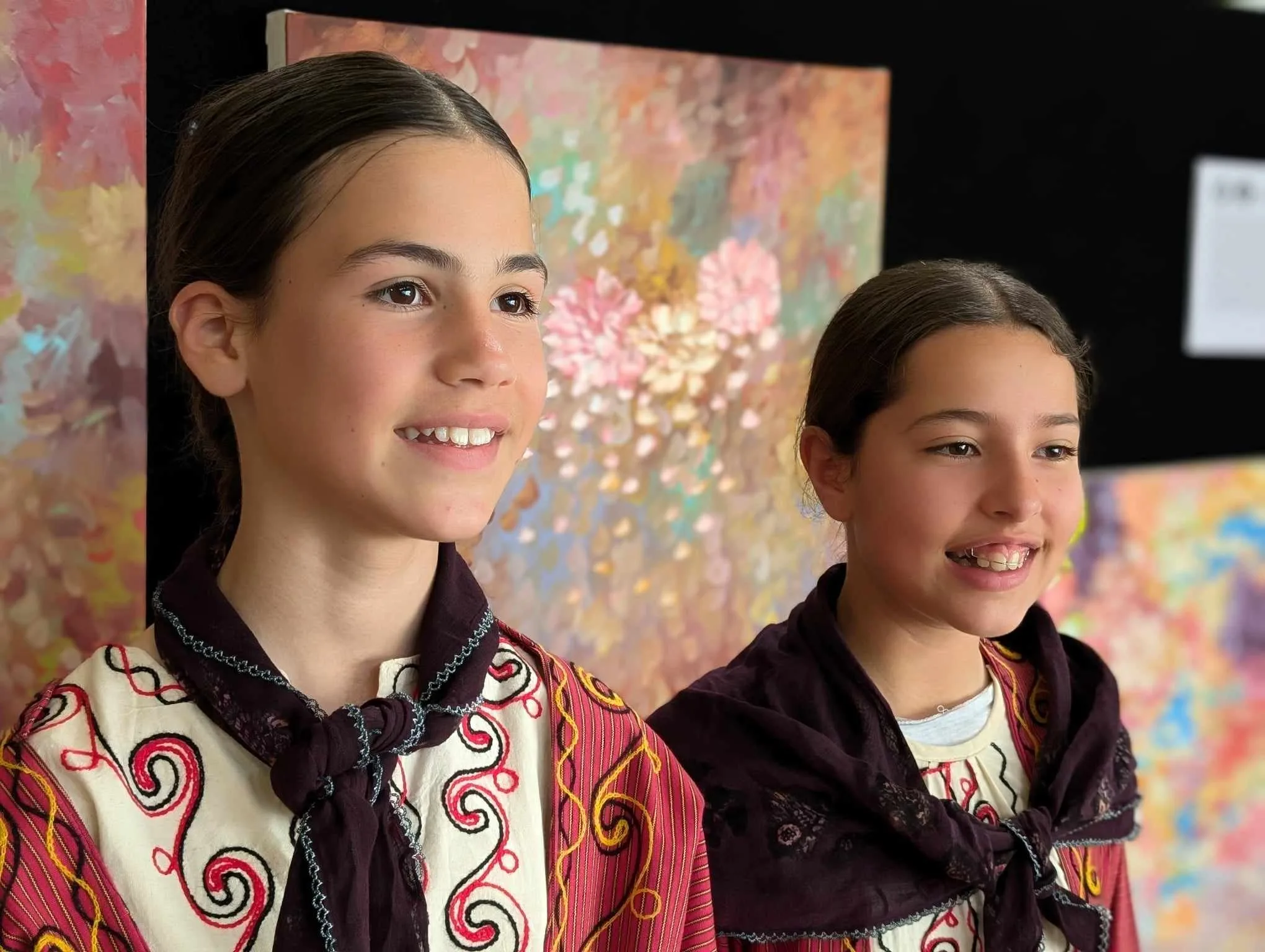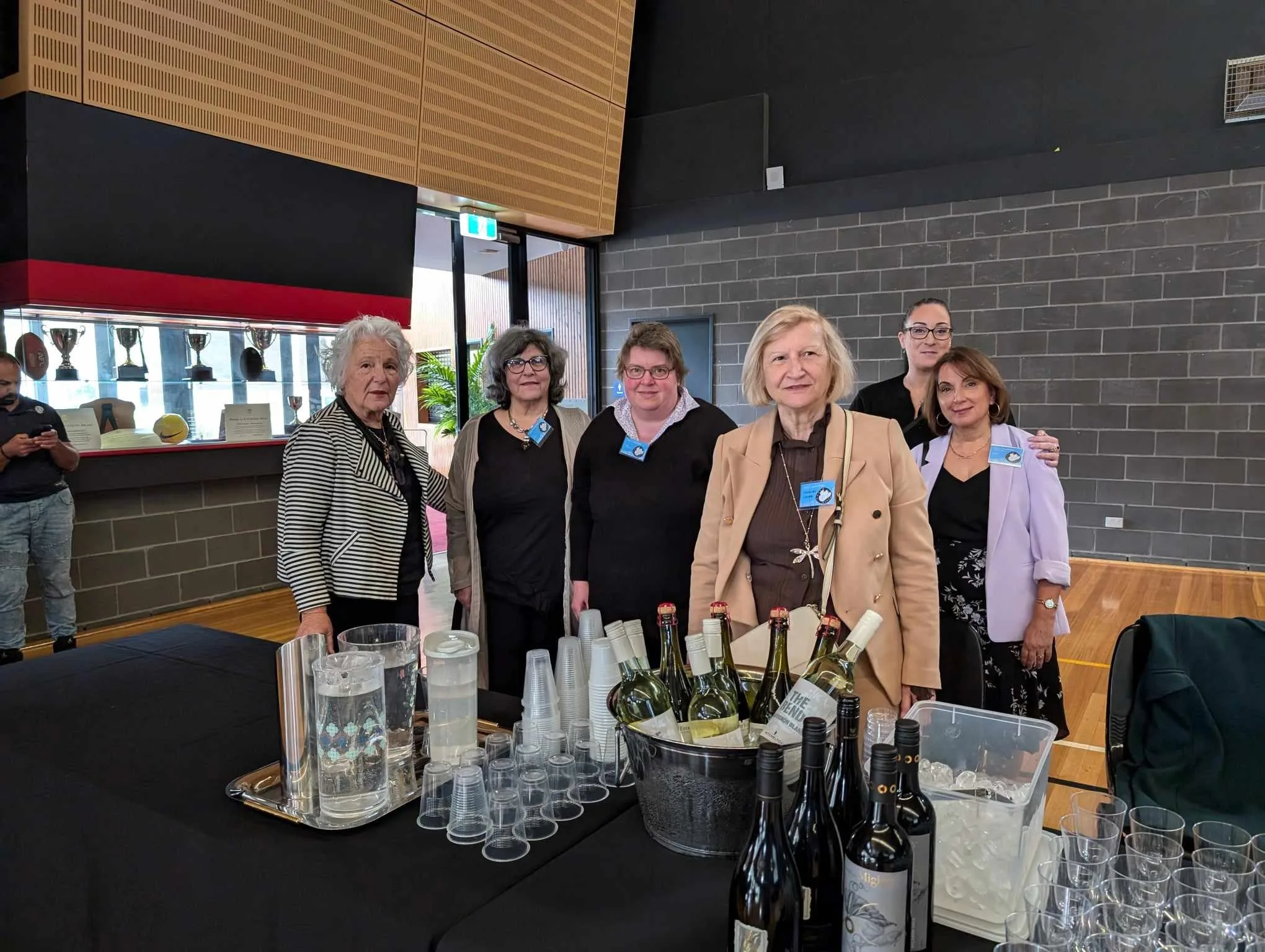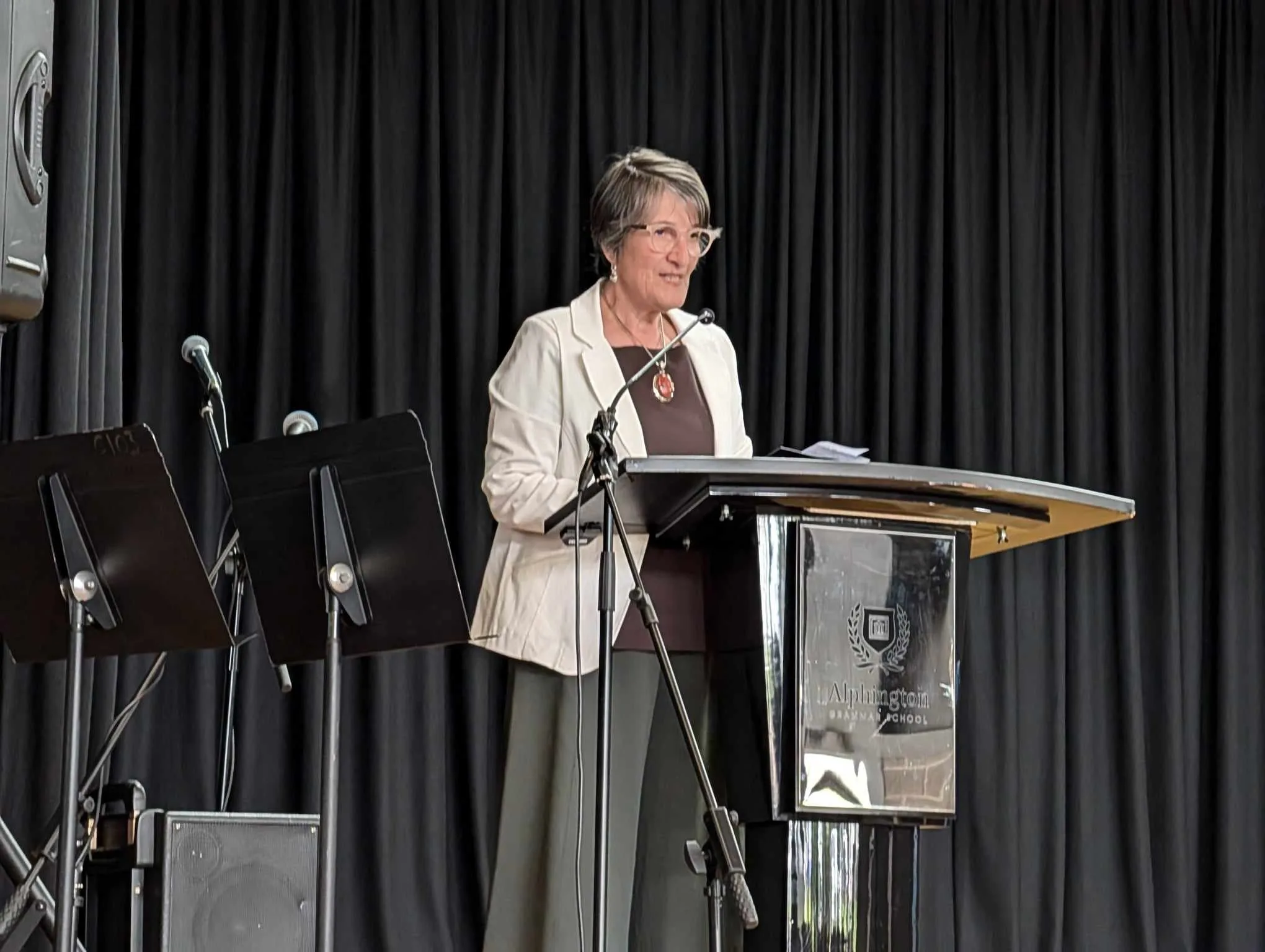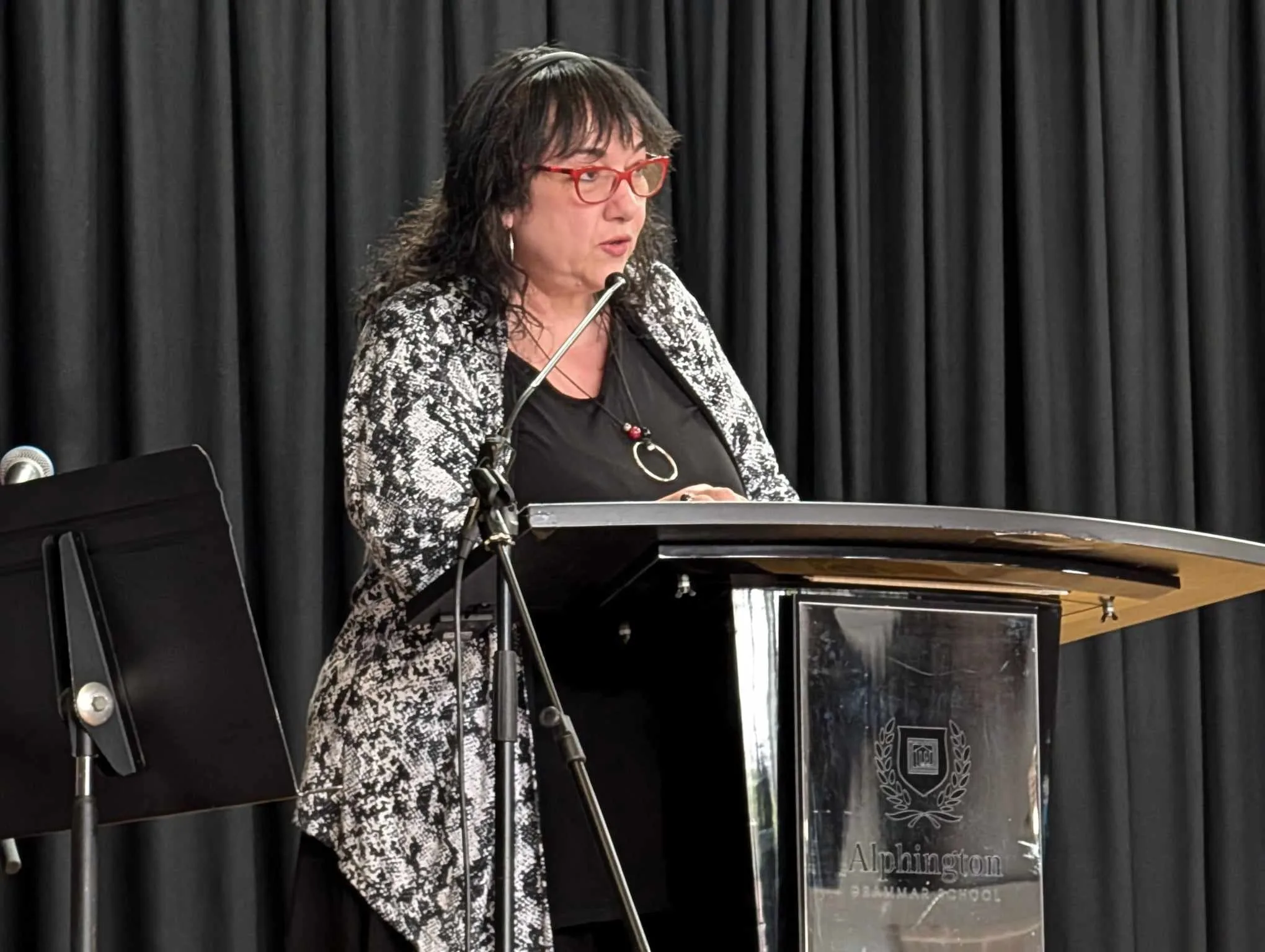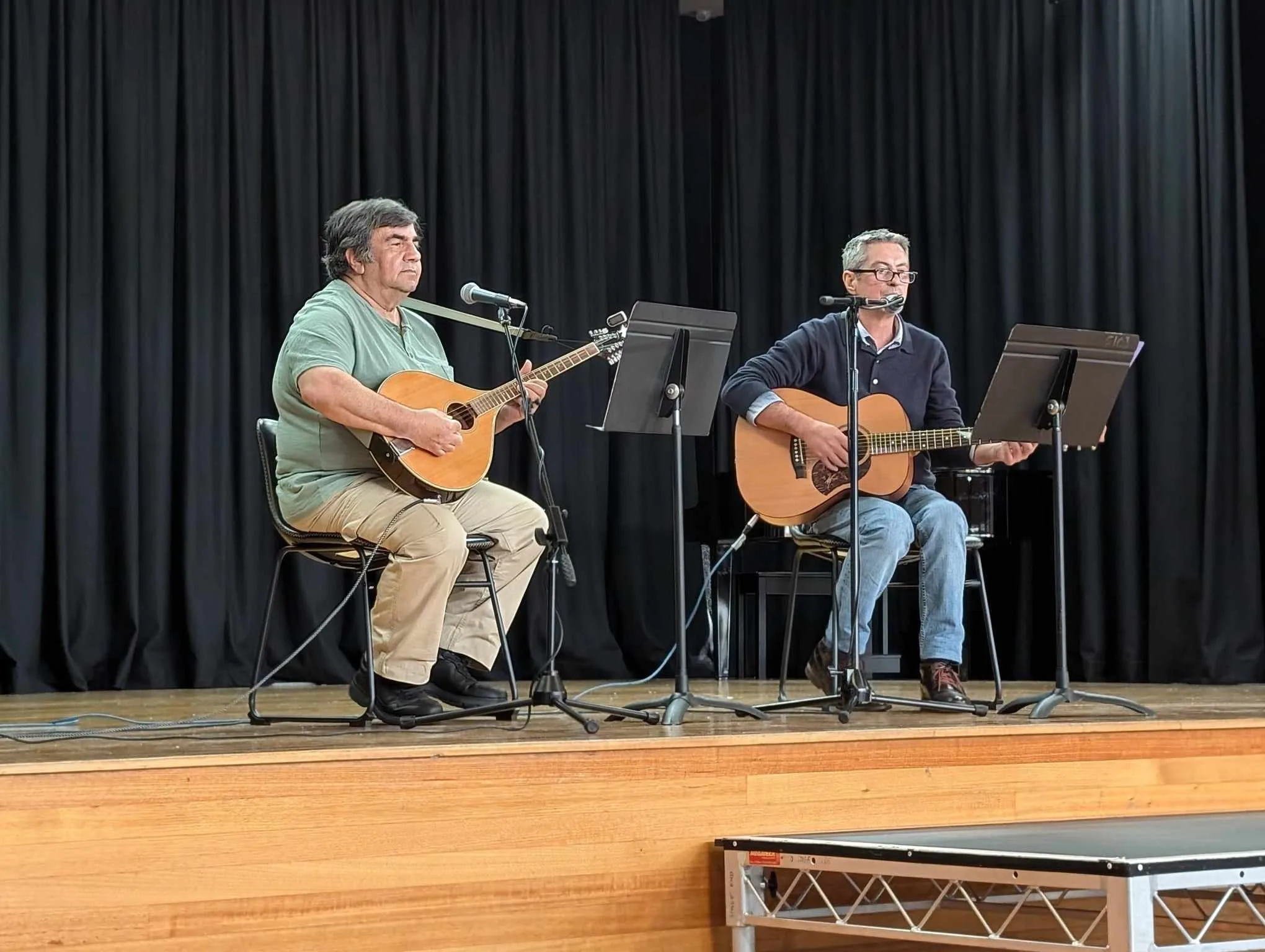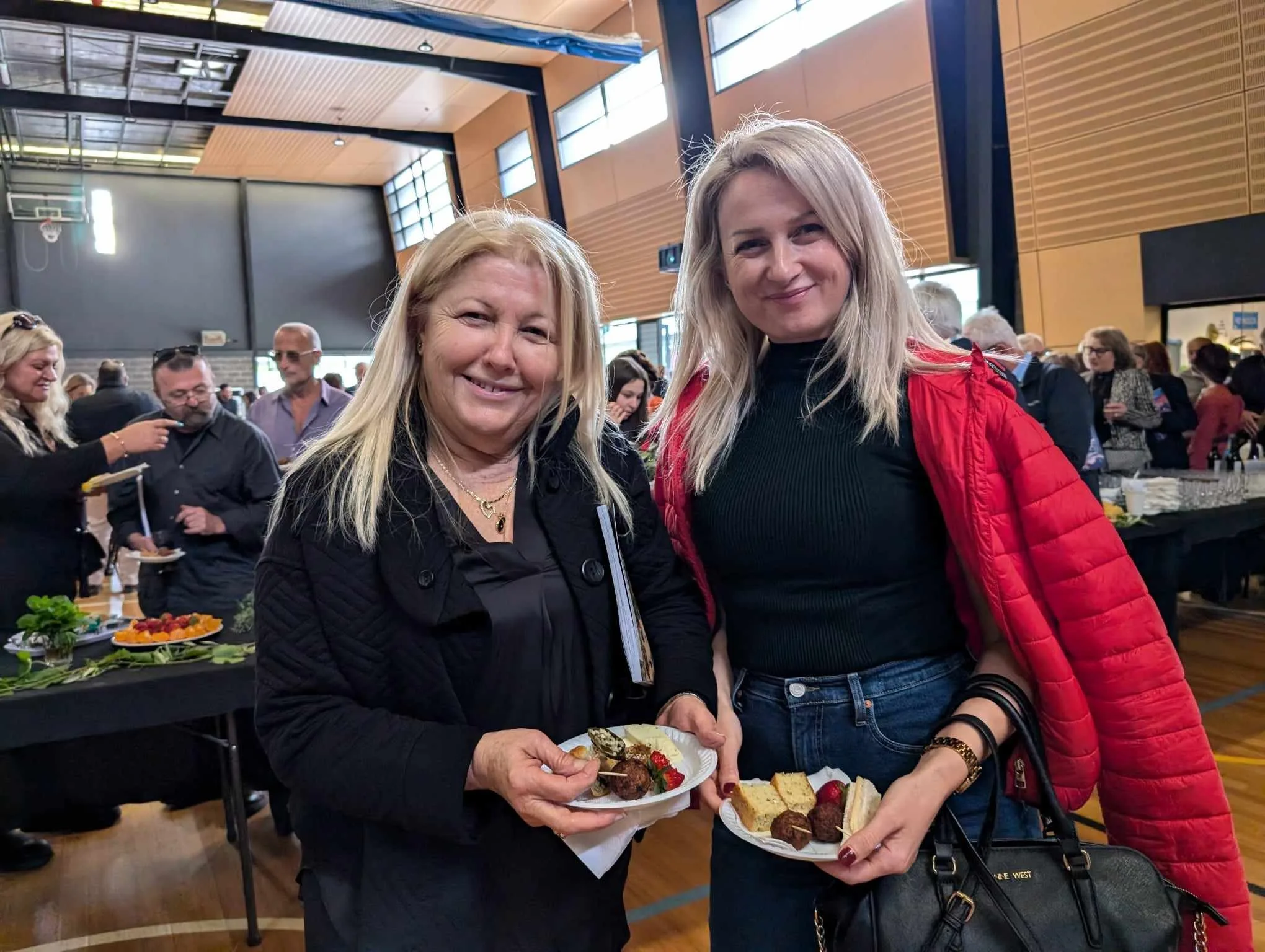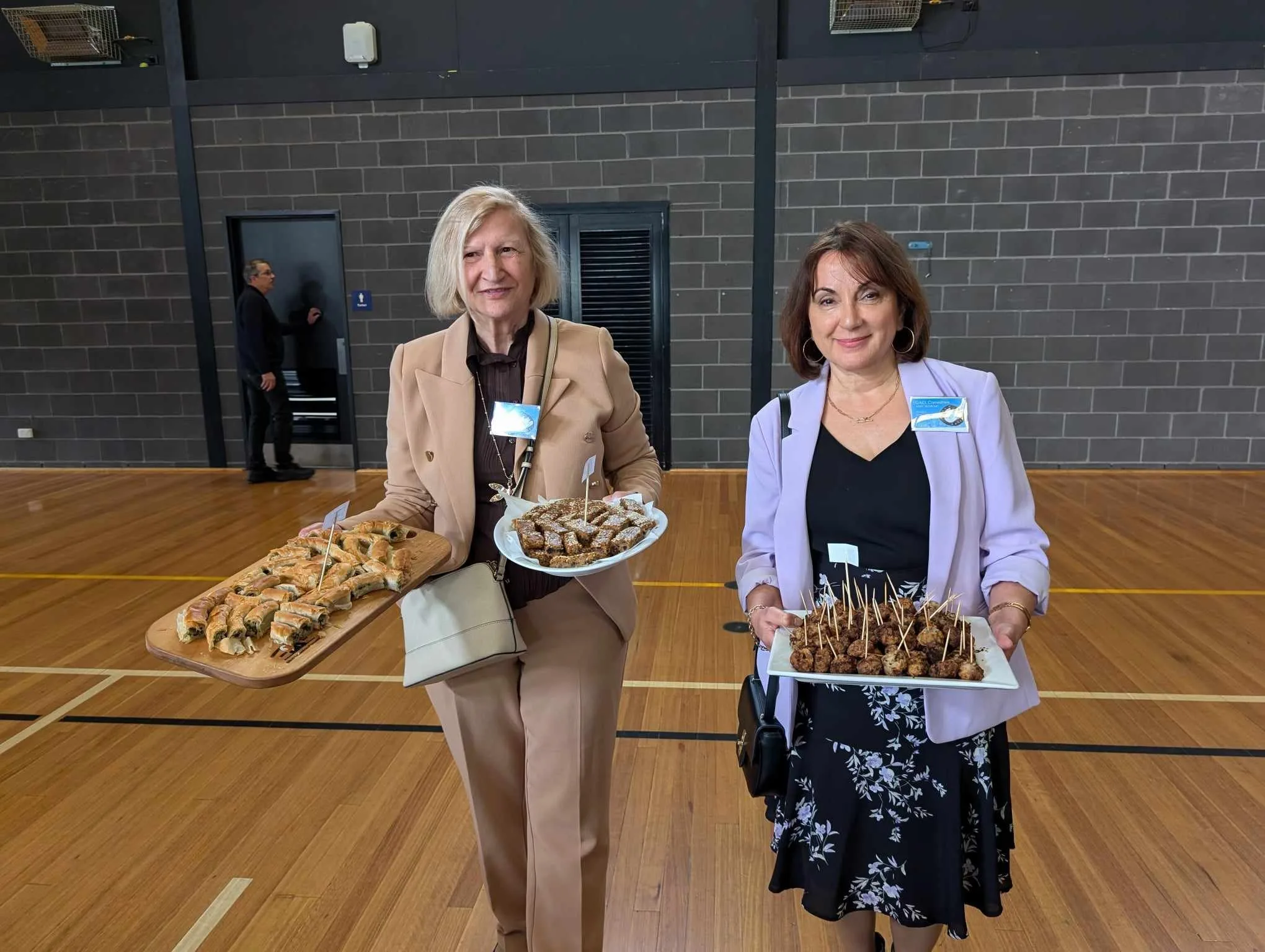When Turkey invaded Cyprus in 1974, the Antipodes periodical had just celebrated its first birthday. Since then, it has grown from a humble leaflet into the world’s longest-running Greek-English bilingual periodical. While Antipodes has flourished, Cyprus has endured a long and painful wait for reunification, filled with missed opportunities and dwindling hope.
On Sunday, October 20, the Greek Australian Cultural League (GACL) launched the 70th edition of Antipodes at Alphington Grammar, dedicating it to Cyprus.
GACL President Cathy Alexopoulos said, “Although a small country in population and land, [Cyprus] has managed to persevere, despite all the conquests it has endured over time. It is the people’s resilience, persistence, and may I say stubbornness, that has allowed their faith, language, and culture to survive.”
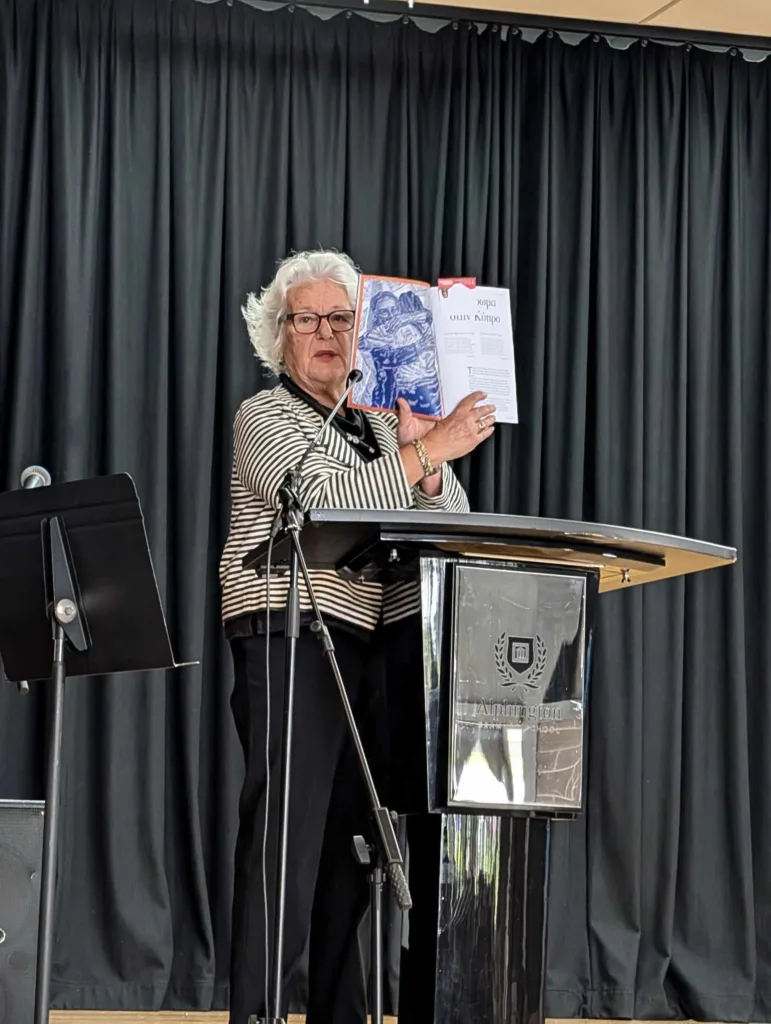
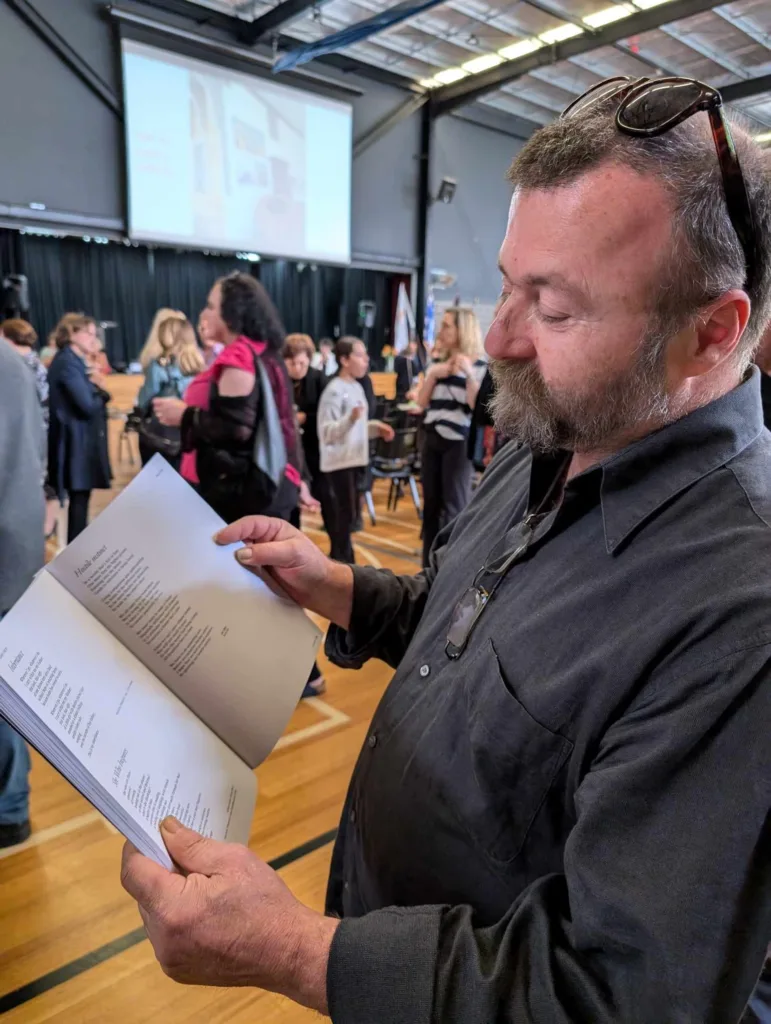
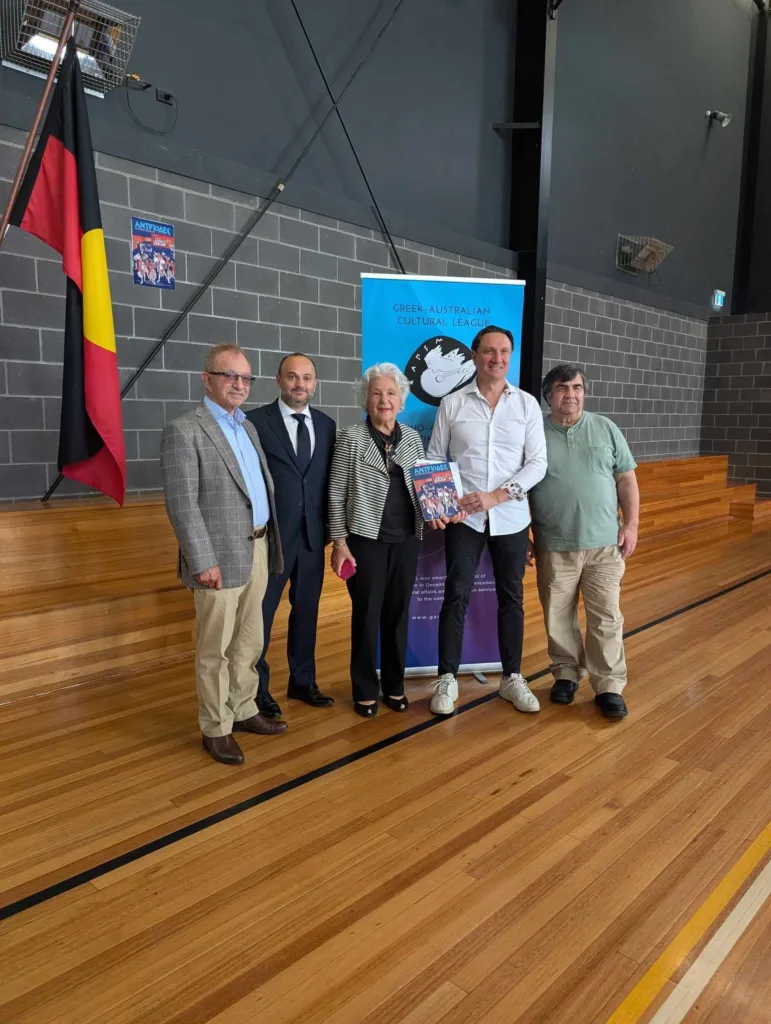
The periodical features accounts of life in Cyprus, essays, poetry, and art. The event brought the cultural richness of Cyprus to life with soulful singing by 17-year-old Tabitha Bourakis, Cypriot songs by Pavlos Andronikos and Argyros Argyropoulos, a Karyatides dance by students from Zenon, and a performance by Pegasus Dance School, Australia’s sole Cypriot dance troupe. To complete the multi-sensory experience, tantalising Cypriot delicacies were served.
Antonis Sammoutis, High Commissioner of the Republic of Cyprus to Australia, highlighted the shared heritage of Greek and Turkish Cypriots as a “point of optimism.”
“The amazing dances performed by Greek Cypriots here today are the same dances performed by Turkish Cypriots. We are united by more than separates us,” he said.
Mr Sammoutis drew attention to Yiannis Milides’ study of Eurydiki Pericleous’ As Truthfully – the Life of Harita Mandoles. Harita’s pain at having witnessed the execution of 12 members of her family in Cyprus is mirrored by that of Sultan Kafir, who lost five members. Both sides have suffered deeply.
The High Commissioner hopes that by emphasising shared elements, it is possible to build bridges of understanding.
Maria Vamvakinou MP, married to Cypriot Michalis Michael, recalled, “Fifty years is a very long time. I remember vividly the first refugees who arrived in Australia in 1974.”
Ms Vamvakinou emphasised that the Cyprus issue remains a pressing concern, despite its lengthy history. She outlined missed opportunities for Cyprus’ reunification over the years, focusing on the Annan Plan.
“Where would Cyprus be today if the Annan plan had succeeded?” she questioned.
During her visits to the island, Ms Vamvakinou has observed the demographic shift.
“We are now in the second to third generation of refugees… What worries me is that we might forget. I am sure many won’t forget [in Cyprus], but people are moving on, and if you visit the refugee neighbourhoods in Nicosia, you will find the new reality and the emerging issues that Cyprus now faces. And those new realities include the large number of people who come to Cyprus illegally,” she said.
“We must keep the Cyprus issue alive on the global agenda so that it is not forgotten or abandoned.”
Labor MP Kat Theophanous has frequently condemned the illegal occupation of northern Cyprus by Turkey. It is deeply personal for her.
“For me, Cyprus is a collection of fragments: family stories, odd photos of pappou threshing wheat in Ashia, memories of plucking figs from a tree in Nicosia where I lived with my mother and brothers when I was young… our beautiful Yiannakis beach near Polis where dad was born, the prayer I whisper to my girls before bedtime,” she said, adding the emotions she felt when she visited her mother’s house in occupied territories.
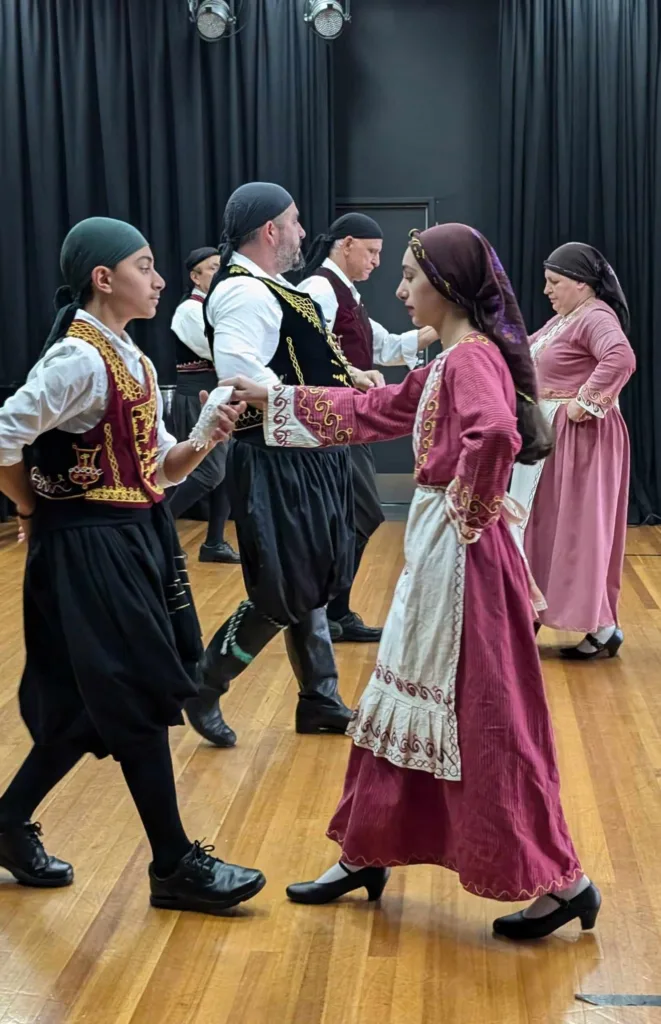
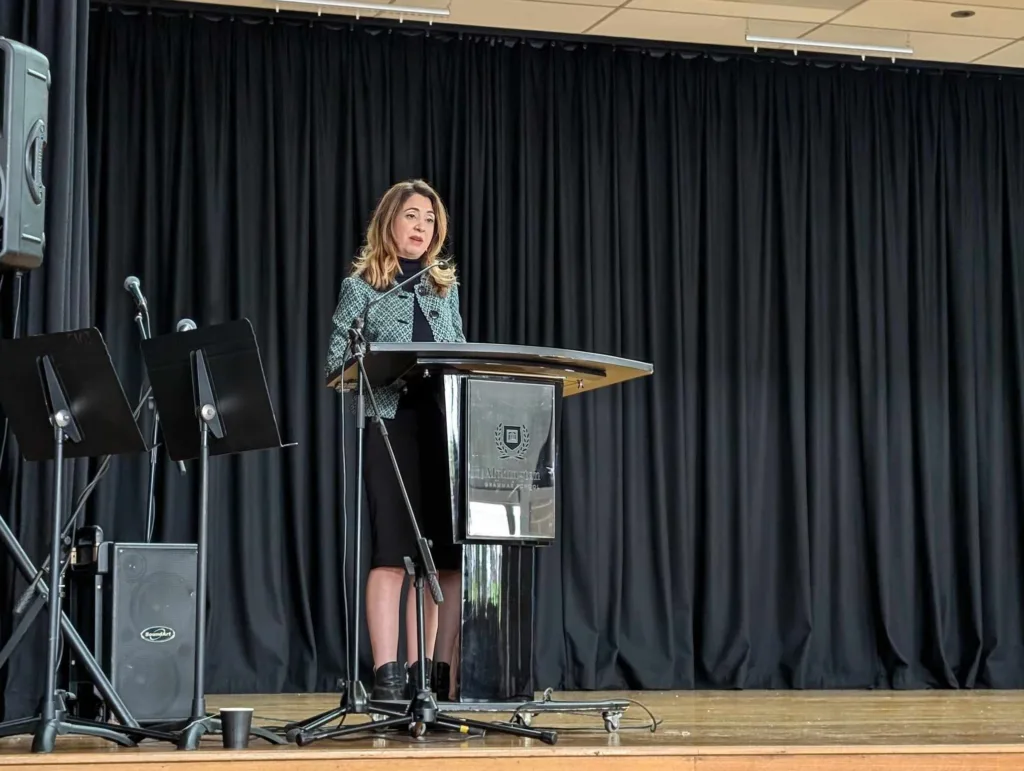
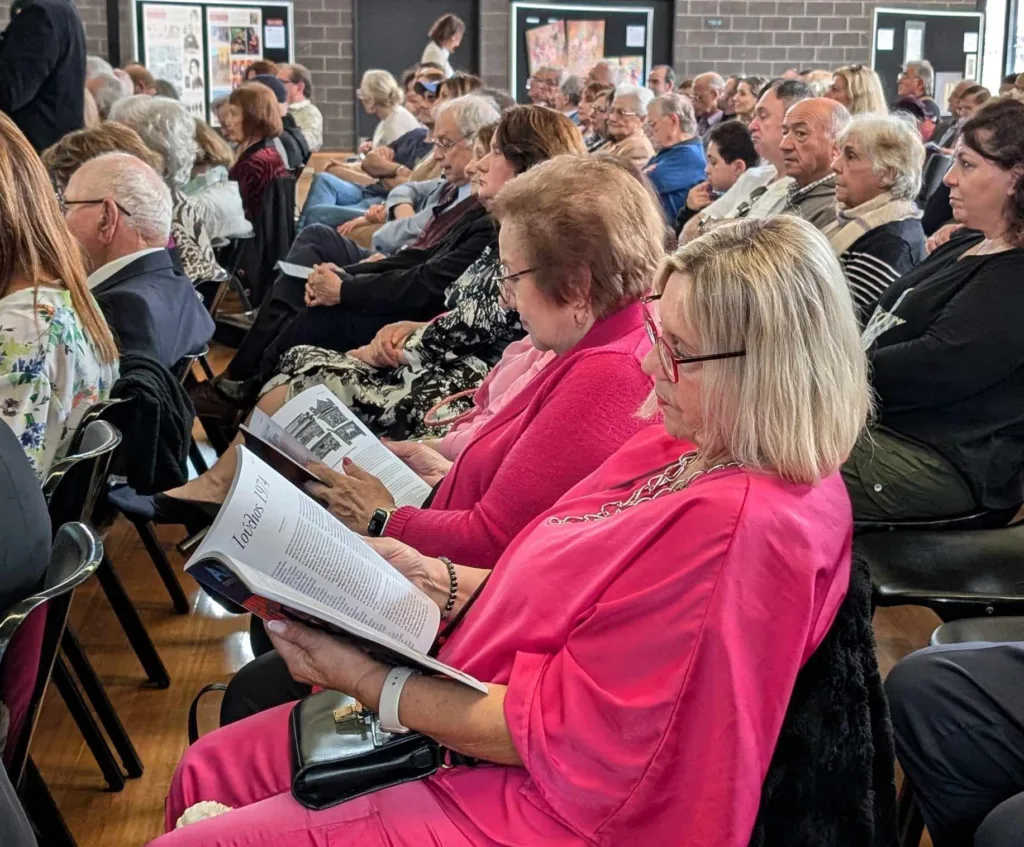
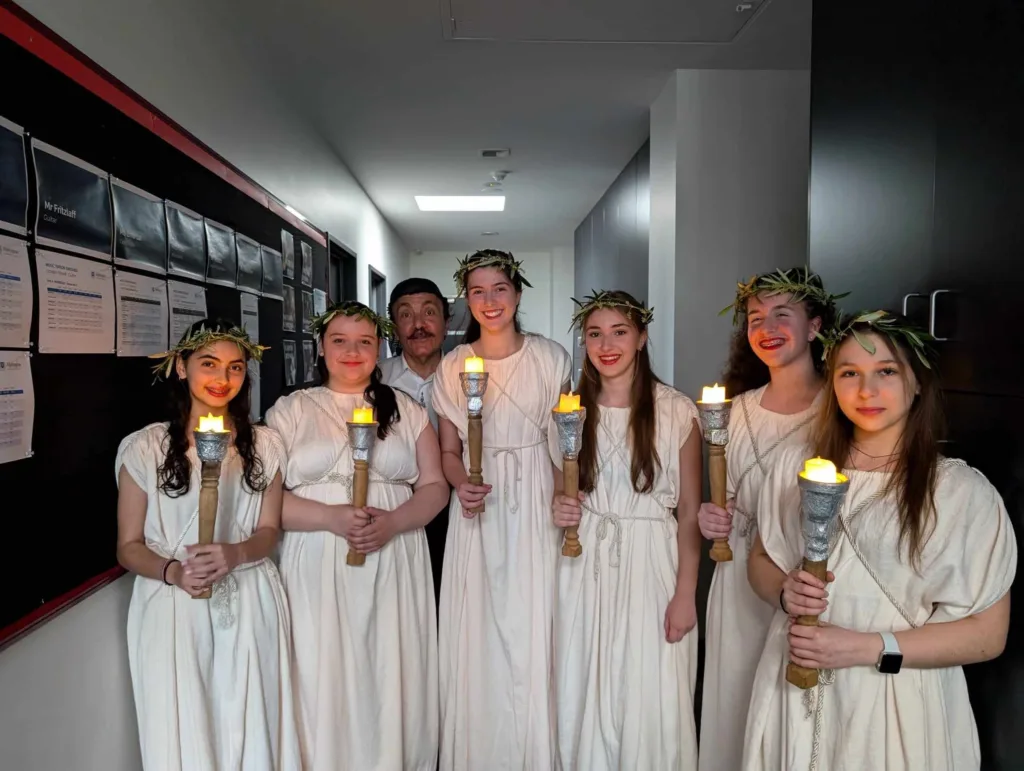
Mr Sammoutis spoke of mothers with missing children, connecting the Cyprus tragedy to more recent tragedies around the world.
“I believe that if women in the Middle East had their way, there would not be wars today. The same would be the case for Russia and Ukraine,” he said, linking the tragedy of war to the subjugation of women.
His words certainly ring true as far as the female dominant leadership of Antipodes is concerned. President Alexopoulos and Vice President Andrea Garivaldi, who emceed at the launch, have put together a well-thought publication capturing the enduring spirit of the Cypriot diaspora and their unwavering commitment to keep the island’s plight alive in the global consciousness.
